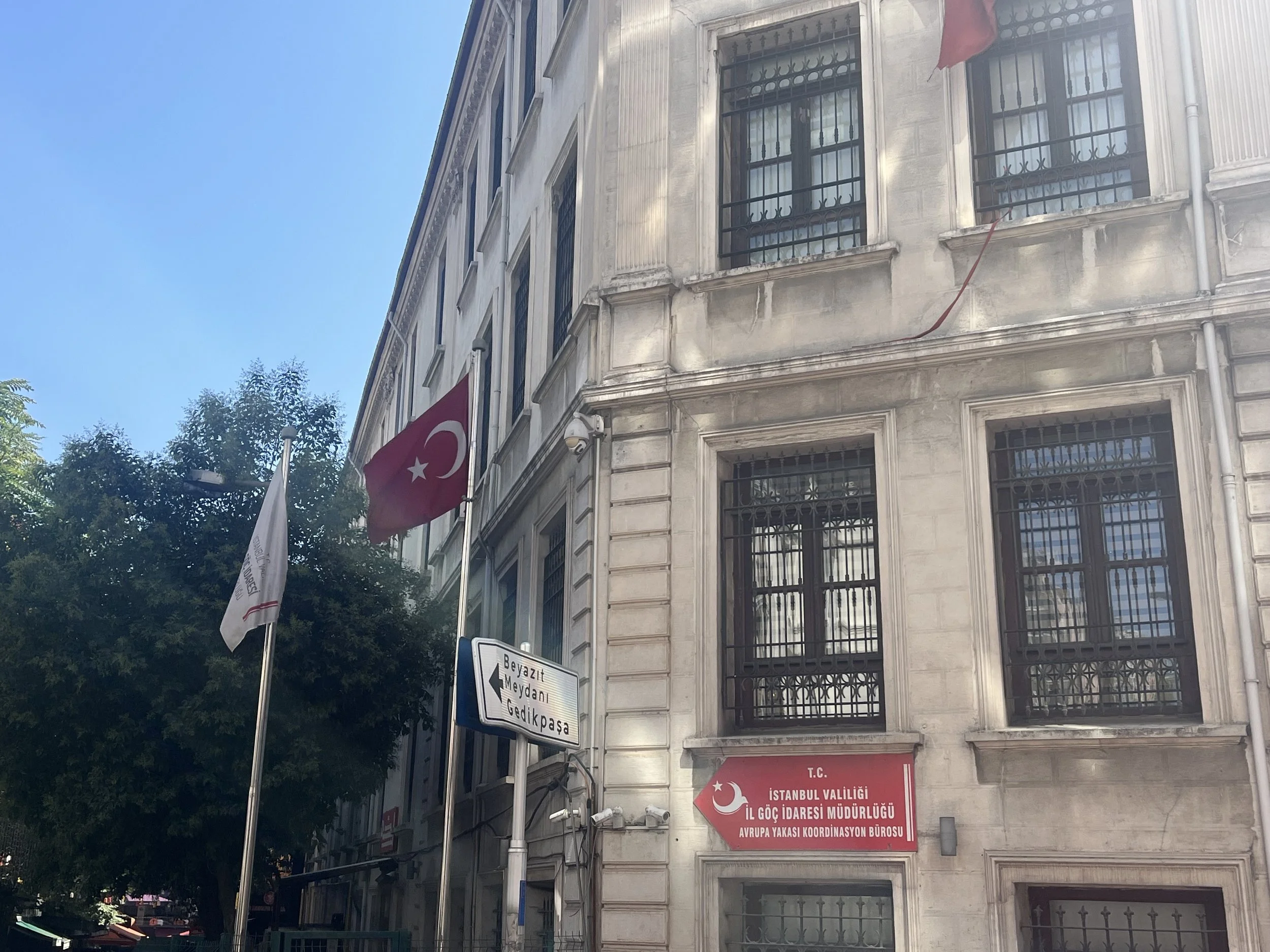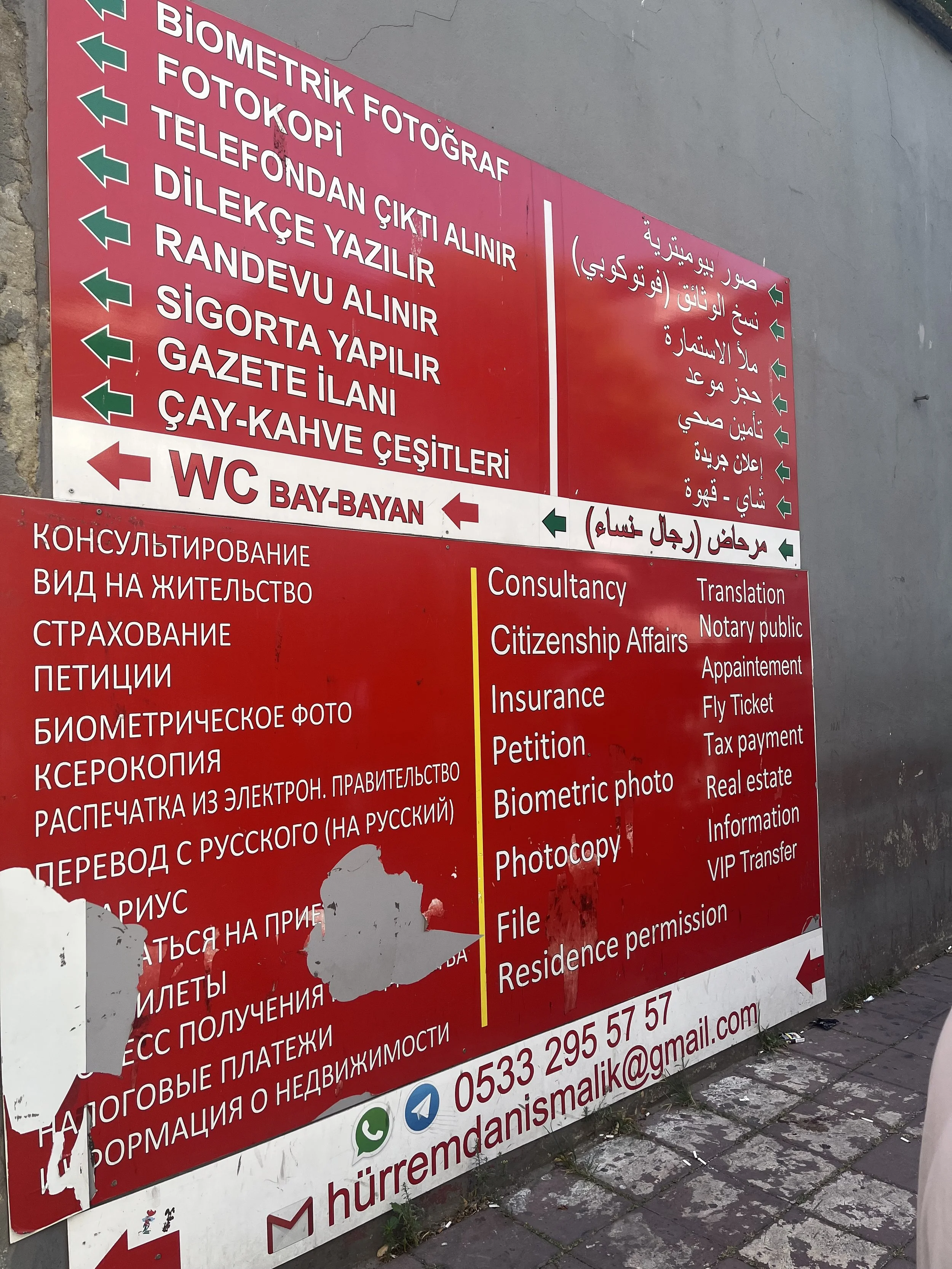
Securitization without Security:
How Migration is Shaping the Global Order
notes from the field entry #10
The Presidency of Migration Management
Author: Samet Apaydın
Location: Fatih, Istanbul
Date: August 25, 2025

My last visit to Fatih was interrupted when I came across a mobile police unit dedicated to irregular migration control (see Entry #9). Although those observations were useful for understanding how the Turkish government tackles irregular migration through enhanced forensic ID checks, I still wanted to explore the rest of the district. Given the heavy international and domestic tourist traffic over the weekend, I decided to revisit the area on the first weekday.
As someone who has lived in Istanbul for over a decade, my walk through the centre of Fatih was far from a first. The peninsula still catches my attention with its monuments that show many centuries of history in a small area. This time, rather than focusing on the landmarks, I turned to the backstreets of the district. After leaving the Grand Bazaar, I continued further into Fatih. What struck me most was the limited number of Arabic shop signs. Fatih is often described as an “ethnic town,” but my observations suggested otherwise. This is not accidental. In recent years, public backlash against the neighbourhood’s changing cultural character has led the authorities to enforce stricter rules. Shop owners are required to ensure that 75 per cent of their signs are in Turkish, and the authorities carry out regular inspections to enforce this regulation. These measures have clearly shaped the public face of the neighbourhood. Diversity exists, but it is less visible than expected. What might seem like a simple rule about signage is closely connected to wider debates about migration, identity, and belonging in this historic part of Istanbul.
After several minutes of walking, I noticed a group of migrants asking for directions, followed shortly by others coming from the same direction. I decided to follow them and soon realised where they were all heading: the Presidency of Migration Management (PMM).

In the street outside the PMM, almost every wall and shopfront is covered with advertisements offering services for migrants. Signs in Turkish, Arabic, Russian, and English promote biometric photographs, photocopying, petitions, insurance, and even coffee or tea. The multilingual signs clearly target the main migrant groups who visit the PMM, especially Arabic-speaking and Russian-speaking communities. These advertisements show how a small economy has developed around migration bureaucracy, providing the documents and services needed for applications and renewals. The street itself reflects the diversity of the migrant population and the constant demand for paperwork support.
I was not allowed to enter the building because I did not have an appointment, and the civil servants inside were busy with their duties. Instead, I stayed outside and watched people as they left. One family was there to register their new-born baby, since new-borns do not automatically take the legal status of their parents. Two young men came to extend their residence permits, but they were upset about recent rejection decisions by the PMM. One of them was on the phone, probably with a lawyer or migration expert, and he was speaking in limited Turkish to ask how to get a missing document. Another person I met was there only to give his signature because his residence permit had already expired. He had to report regularly to the authorities until his situation was solved. People like him must sign in often instead of being kept in removal centres. In my earlier visit to the Mobile Migration Point, one man was caught by the police because he had not gone for his required signatures, even though he was called several times. He avoided it out of fear of deportation.
The PMM was created in 2014 as the Directorate General of Migration Management and became a Presidency in 2021. Before that, migration issues were under the control of the police. Moving responsibility from the security forces to a civilian authority under the Ministry of Interior has helped both the Turkish state and migrants. Today, the PMM is the main authority for migration in Türkiye, with offices in provinces across the country. This change not only shifted authority but also brought professional staff trained in migration issues. For example, at the Mobile Migration Points, PMM staff work together with the police and check IDs through GöçNET, the electronic migration database of the PMM. These steps show how Türkiye tries to manage both regular and irregular migration in a more organised way, although the system is still far from perfect.
